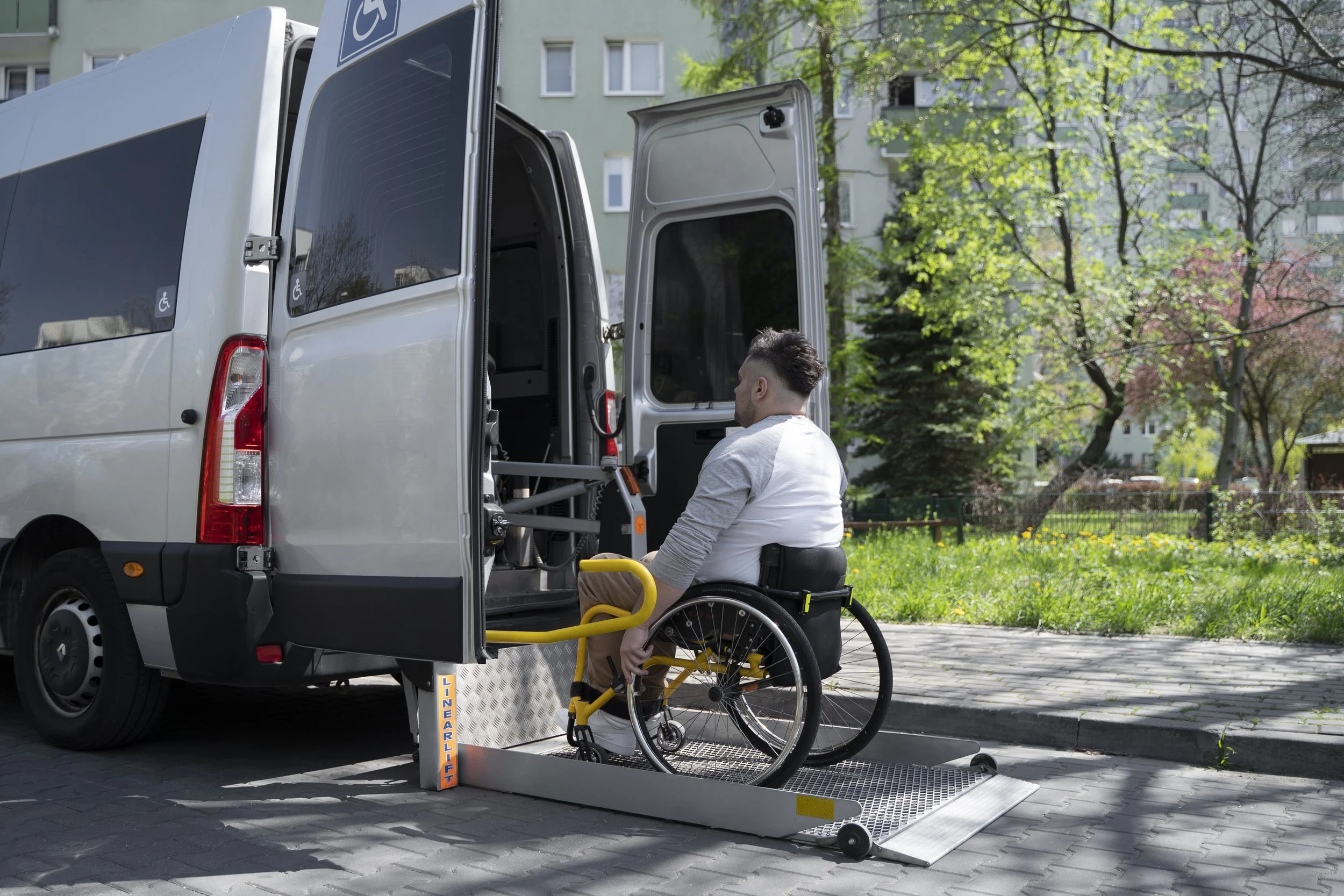The Hidden Cost of Disability
Why Accessible Living Still Comes at a Price
Taking a moment to imagine what a truly inclusive and accessible society looks like can help us realise the impact of barriers on everyday life for people with disabilities. When a building includes features like ramps and automatic doors, it is welcoming for everyone. Without these features, a person who uses a wheelchair might be prevented from getting in. In other words, hardship isn’t a foregone conclusion – it's the presence of barriers that are disabling.
These barriers come in many forms: physical, attitudinal, systemic, technological, and communication-related. Removing them is key to creating truly inclusive environments.
One of the less visible barriers, which is unfortunately all too familiar to many people with disabilities, is referred to as the hidden cost of disabilities. In Manitoba, and especially for families seeking home care or related services in Winnipeg, these hidden costs can be overwhelming. It might sound absurd, but being disabled is expensive!
It’s important to keep in mind that experiences vary, but here are some examples of extra costs that many people with disabilities find themselves paying.
Housing
Finding affordable housing is challenging for everyone. Accessible housing, which includes as little as 10% of the total housing market, is even more difficult. As a result, the Canadian Human Rights Commission estimates that Canadians with disabilities are about 30% more likely to live in housing that is unaffordable.
For individuals looking for accessible living options in Winnipeg, the limited supply of suitable units continues to drive up costs. Some of the available options can be found at Manitoba Housing, Chanden Homes and properties under Fokus housing.
Transportation
Some people with disabilities might need to purchase vehicle modifications to be able to drive, which can cost $10,000 or more. Others might find that public transit is inaccessible and rely on accessible transportation options services to attend work, school, and appointments. These costs can add up to hundreds of dollars per month.
Accessible transportation in Winnipeg remains a barrier for many people with disabilities, especially in underserved neighbourhoods. However, some accessible transportation options in Winnipeg offer door-to-door services for individuals who are unable to regularly use the city’s fixed-route transit system.
Medical and Mobility Devices
Mobility devices and home modifications support the basic rights and dignity of many people with disabilities. For others, the regular purchase of medical devices and equipment might be a literal life-necessity.
Some of these expenses, which can range from hundreds to thousands of dollars, are covered by public funding programs, including provincial health insurance, but some aren’t. The list of covered equipment and devices can vary by funder, making the system confusing and difficult to navigate.
Recreation
Active lifestyles provide all of us with the health benefits and community connections that are key to a fulfilling life. Inclusive recreation, which is also a barrier due to limited opportunities, is particularly important for people with disabilities to maintain their health and stay active.
Adapted sports equipment can range from hundreds to thousands of dollars. With few exceptions, these costs are almost always paid out of pocket.
Manitoba Possible offers inclusive recreation programs that empower adults, children and youth of all abilities to build skills, confidence, and friendships through accessible sports, arts, and summer camps. These barrier-free activities help reduce the social isolation often linked to disability. Other options also include Accessible Sport Connection Manitoba, which offers great options for individuals looking to participate in accessible sports.
Personal Assistance and Care
Support workers can help a person with a disability do daily tasks like getting dressed and taking a shower. Depending on the level of care needed, and the expertise and qualifications of the support worker, costs for personal care can range from $35 to upwards of $100 an hour.
Support for day-to-day tasks can come at a high cost for someone with a disability who has a limited budget.
Helping Families Navigate Care Without Financial Strain
As a non-profit social enterprise of Manitoba Possible in Winnipeg, Care Possible aims to make personal care more affordable and flexible for those managing their own care or caring for a loved one.
The cost of in-home care in Winnipeg on the Care Possible platform starts at around $18/hour, making it easier for families to access the help they need without breaking the bank.
For those navigating self and family-managed care in Winnipeg and surrounding areas, Care Possible provides guidance to help understand available options, connect with the right support workers, and make the most of their funding. The Self and Family Managed Care Program allows eligible Manitobans to hire and manage their own home care workers. Giving them more control over who provides care, when and how.
Learn more about eligibility and funding through these official resources:
What Can I Do?
An inclusive and accessible society means that everyone has access to the basic support they need to live independent and fulfilling lives. This includes recognizing and addressing the impact of barriers. Some advocacy organizations have suggested adjusting the poverty line, which is used to determine access to government benefits, to include the hidden cost of disability.
If you or someone you know is searching for affordable and flexible home care in Winnipeg, visit CarePossible.ca to learn how we make care affordable.
About Care Possible
Care Possible is a non-profit social enterprise by Manitoba Possible, dedicated to providing affordable, flexible, and preference-based in-home and respite care services. We support seniors, individuals with disabilities, and families using self and family-managed care in Winnipeg. Our mission is to ensure that every Manitoban who accesses care has an excellent experience.





